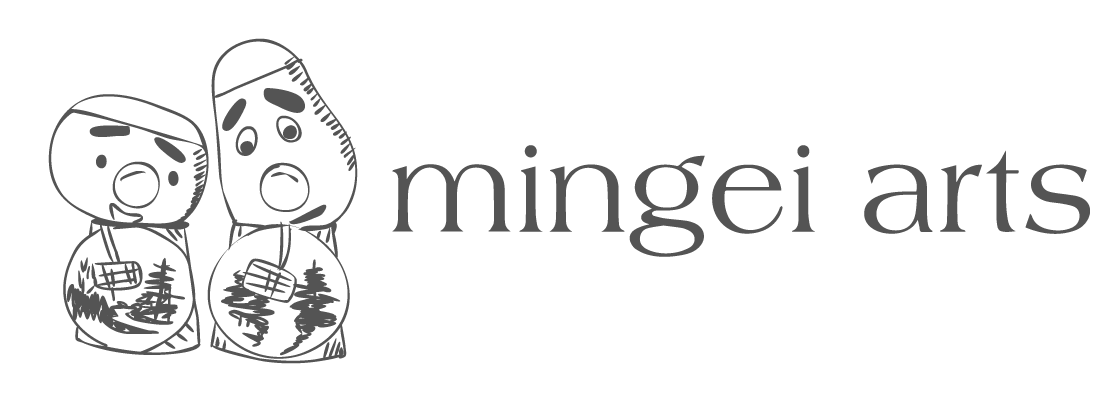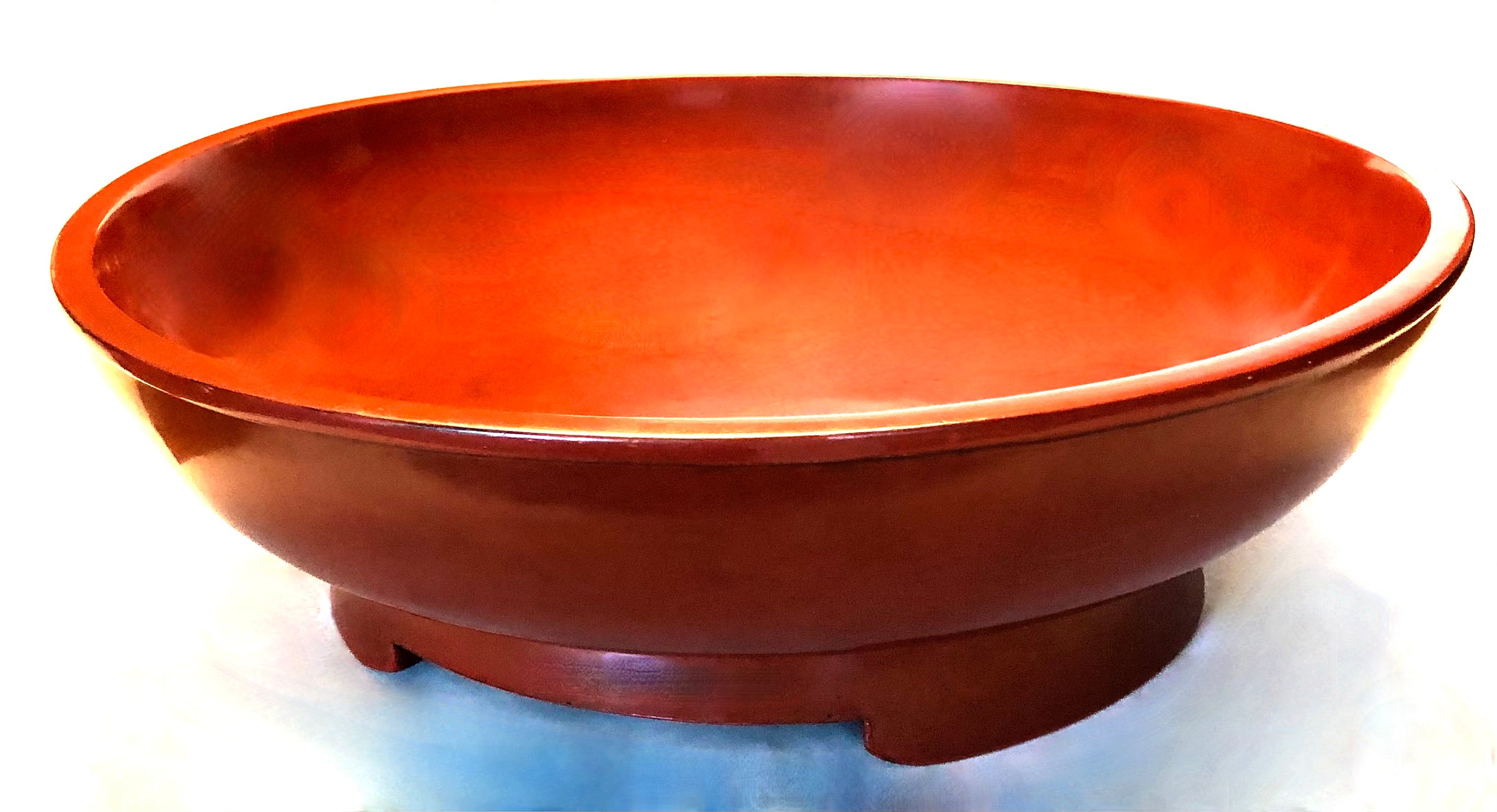
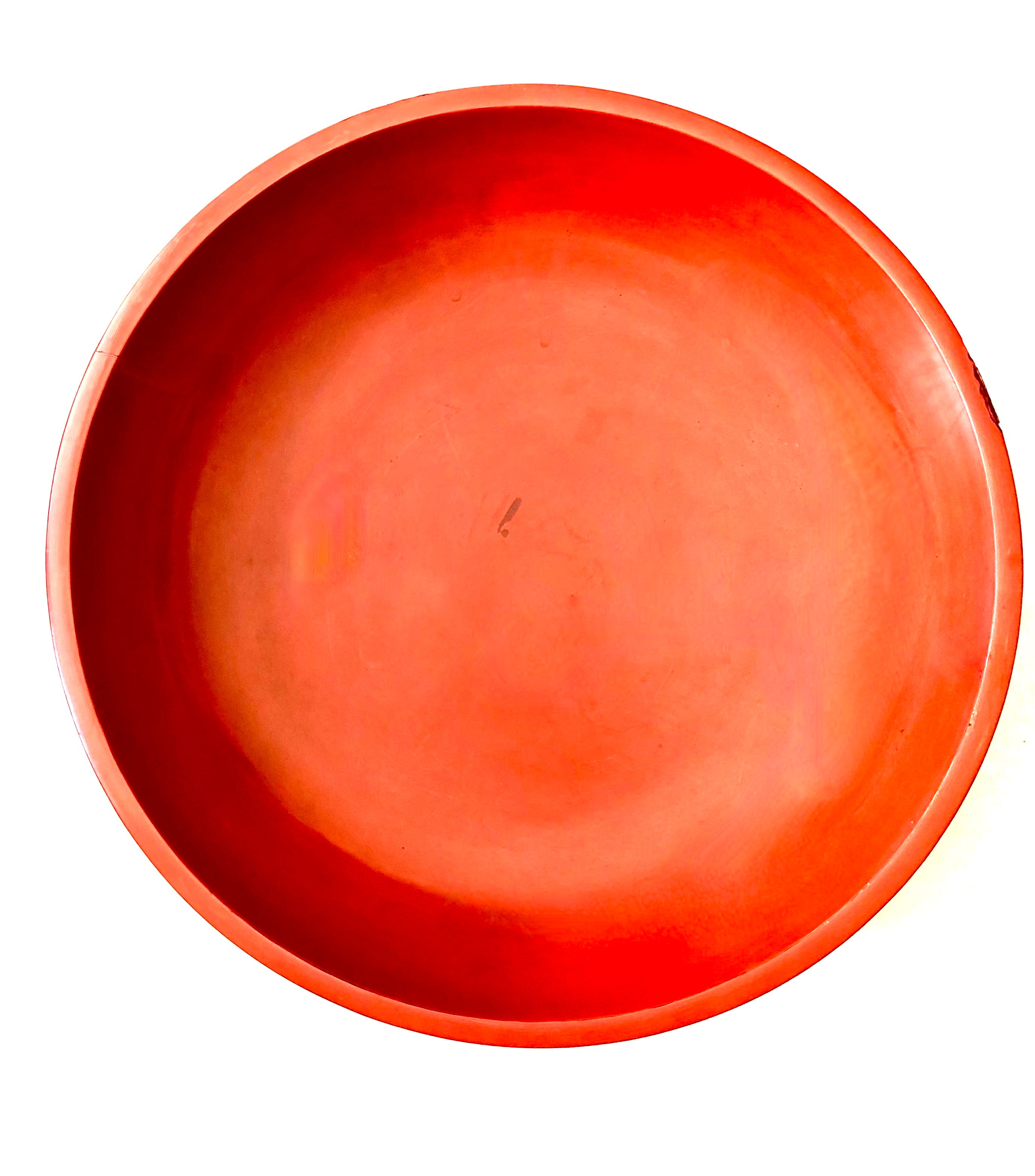
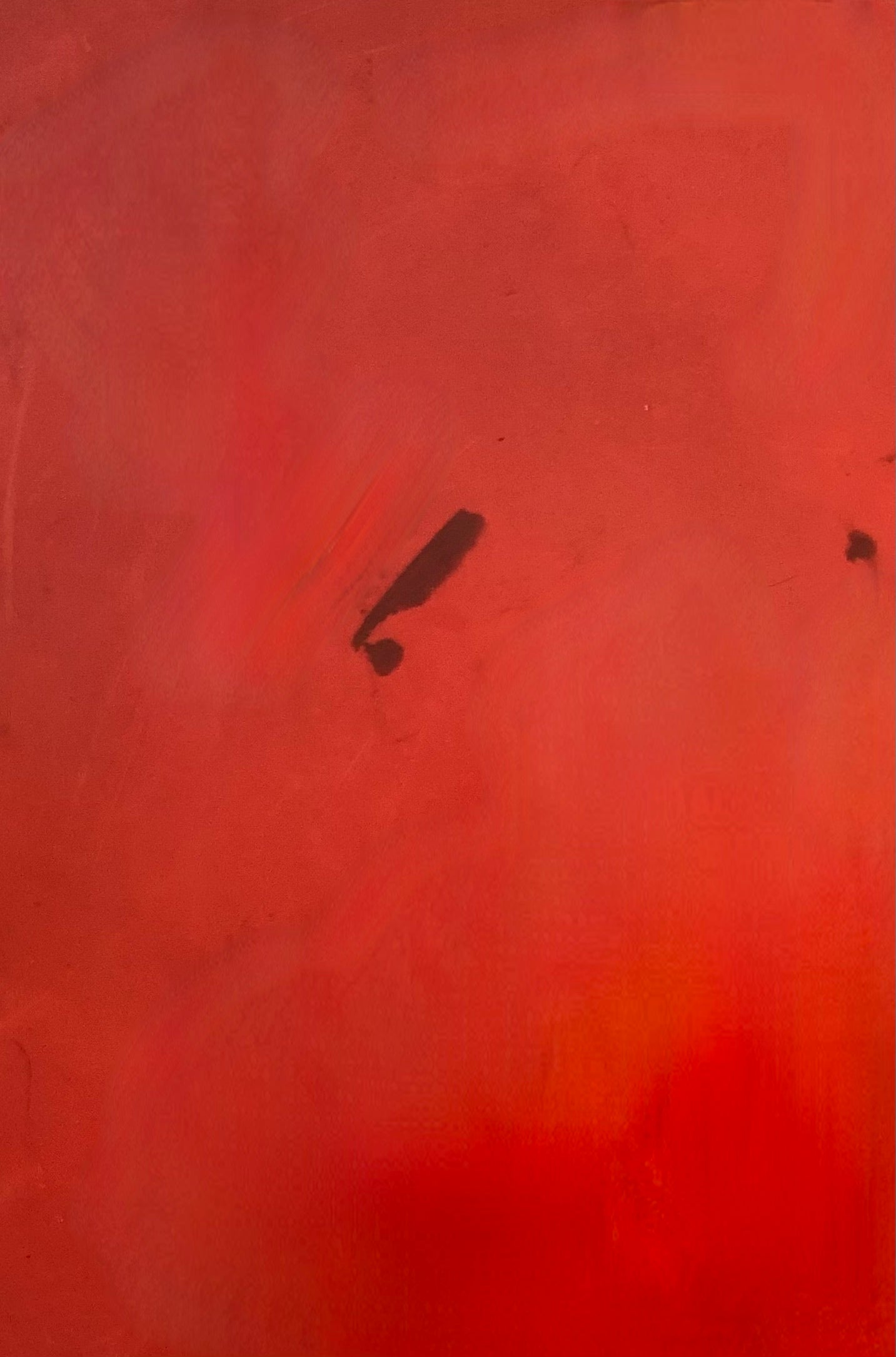
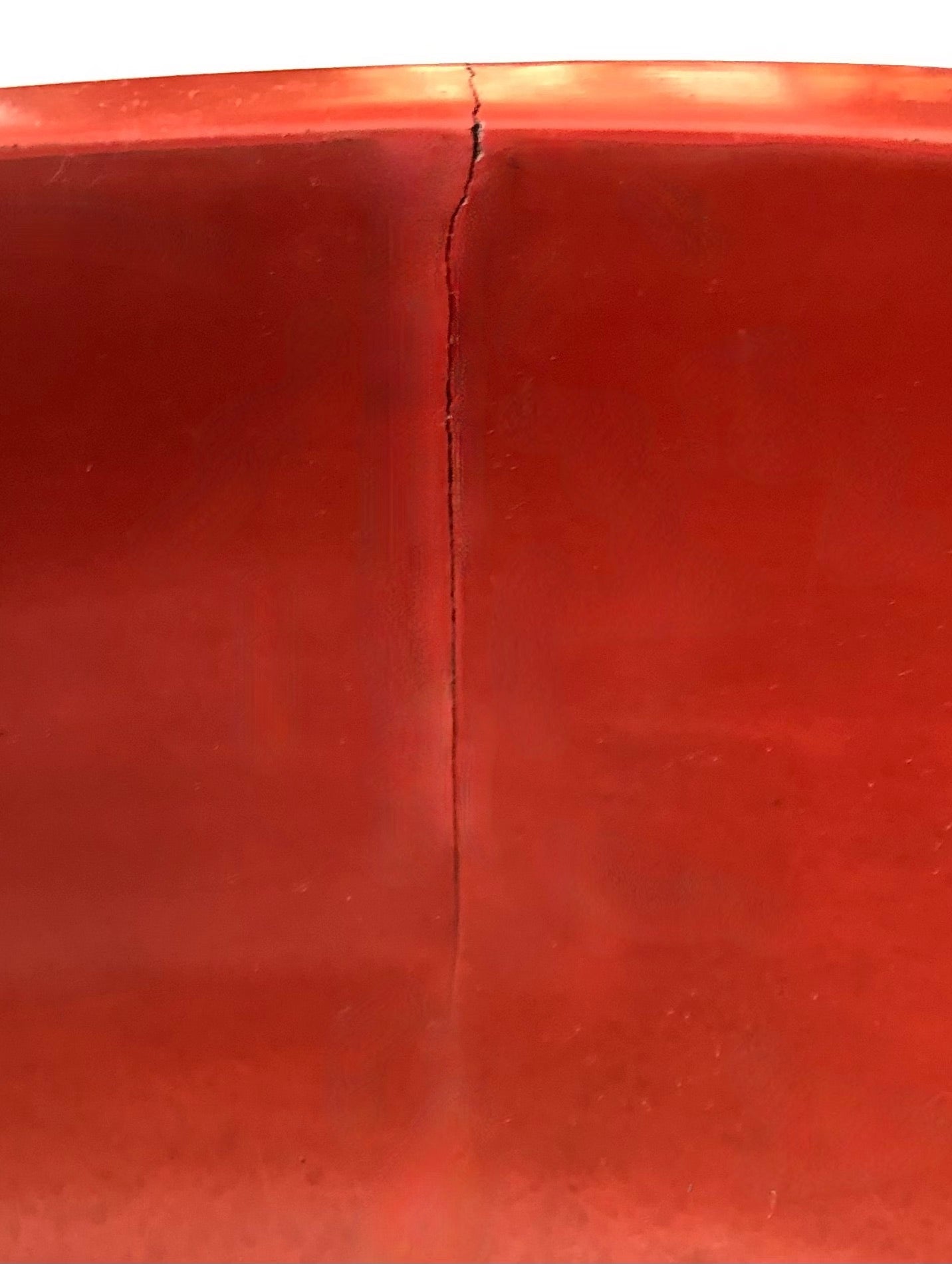
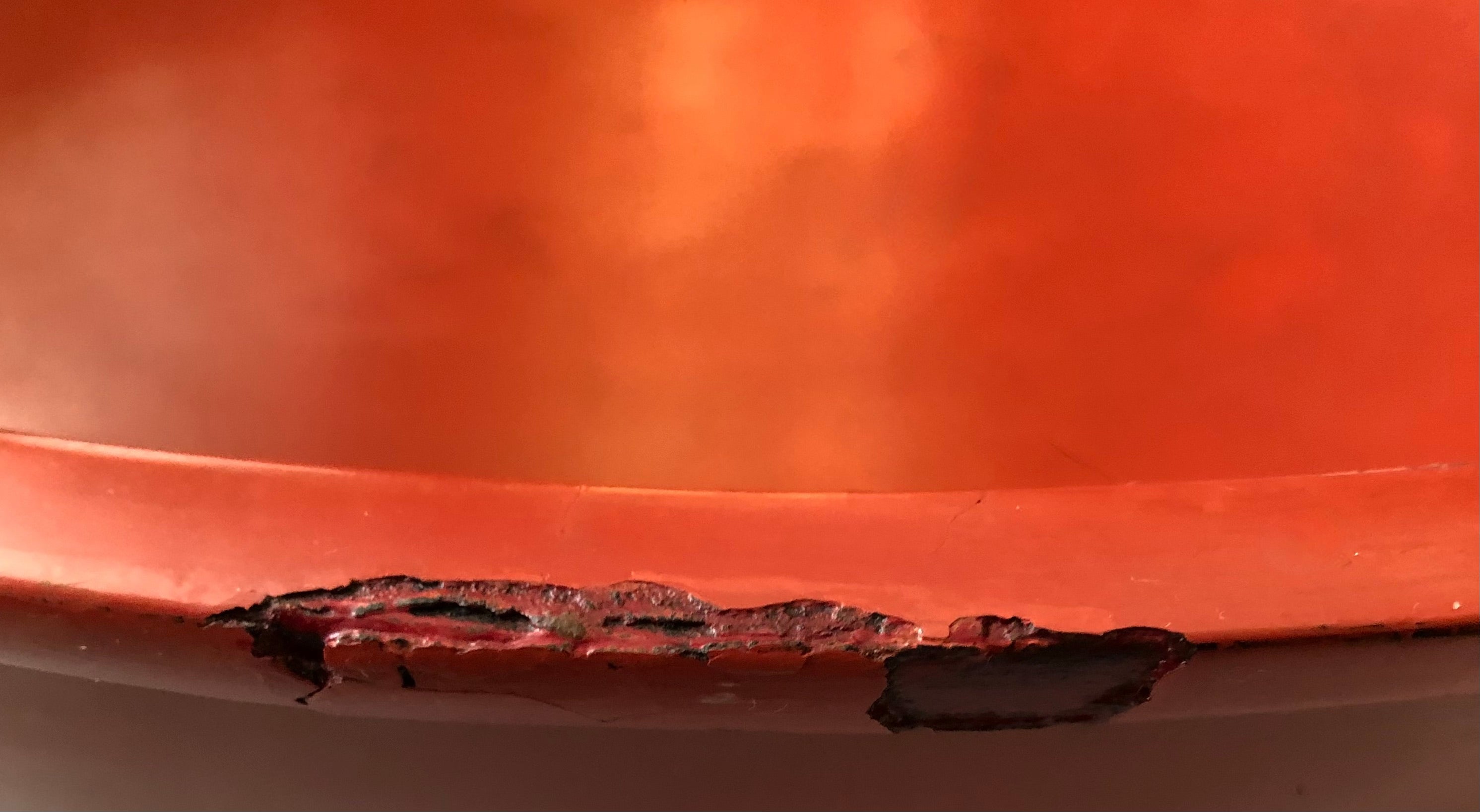
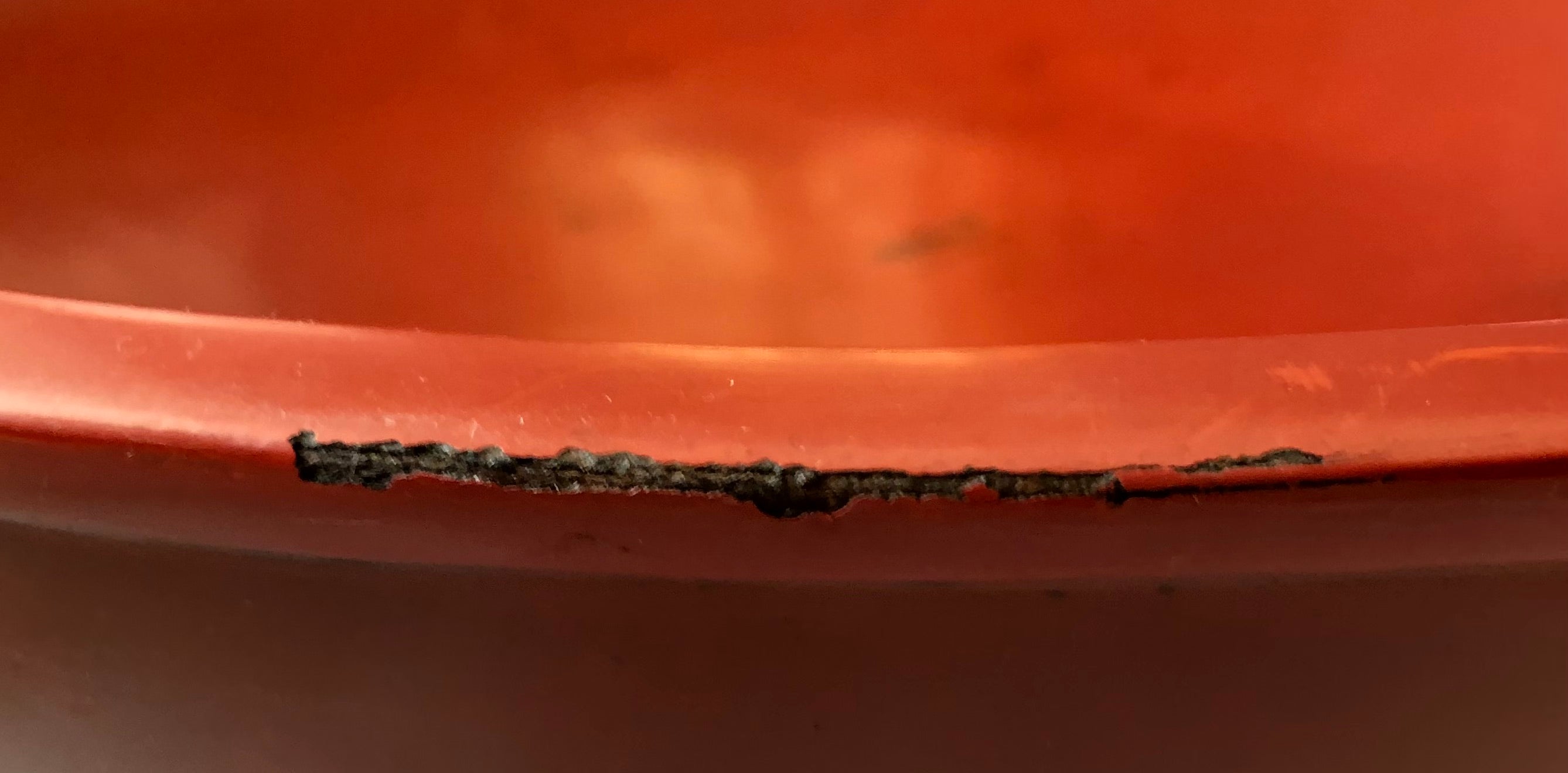
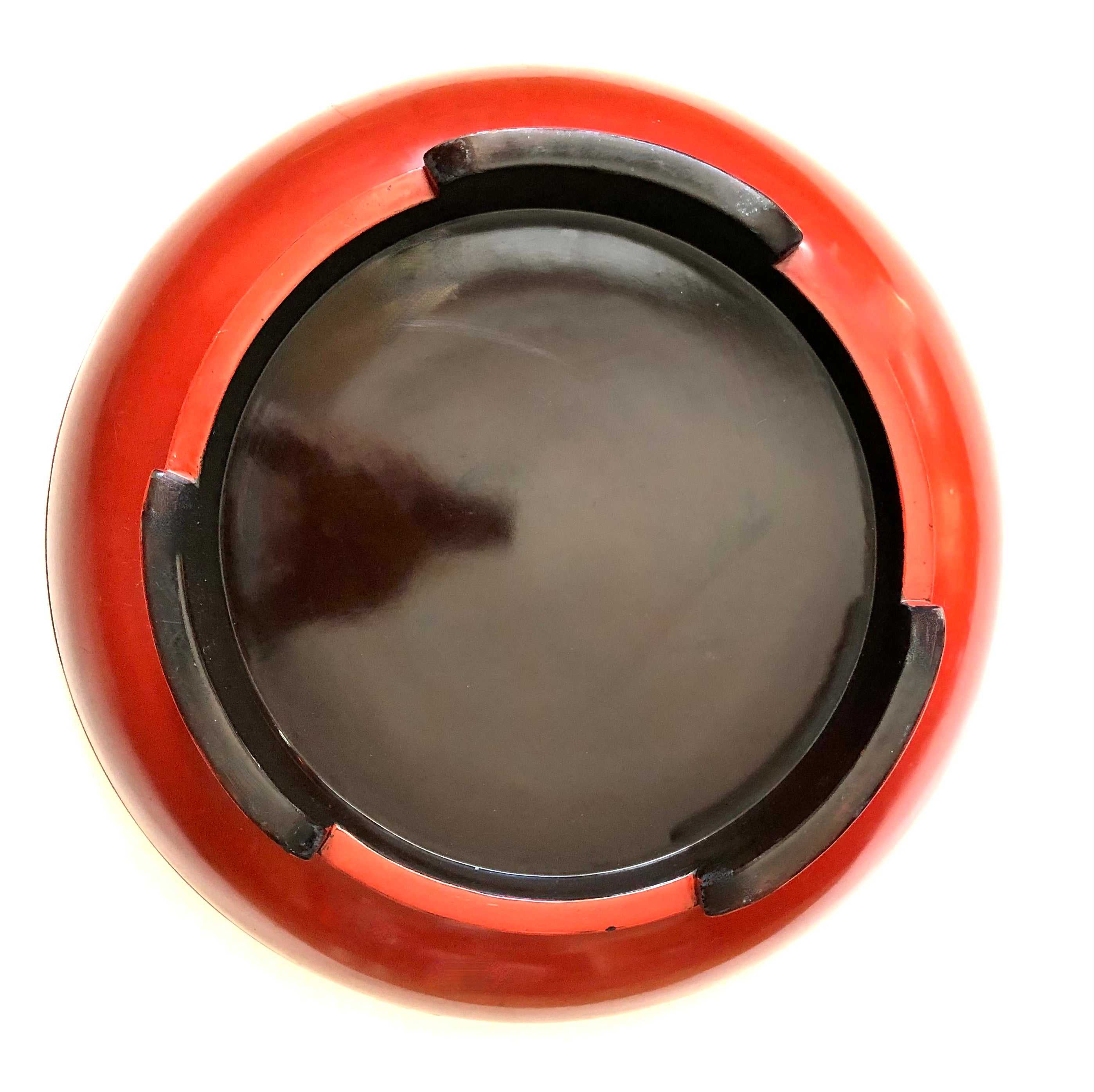
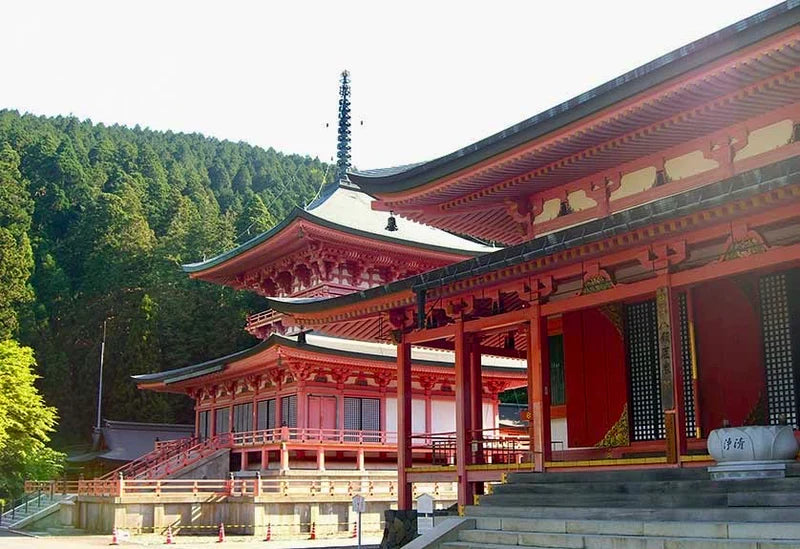
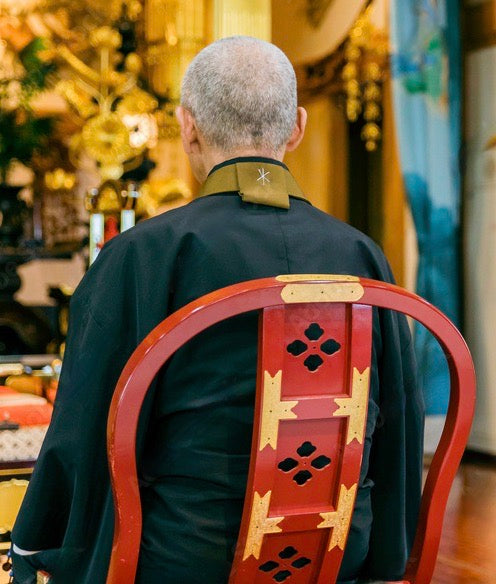
Antique Japanese Negoro-nuri Lacquer Buddhist Ritual Wash Basin ‘Ashitsuki-darai’
Dimensions: 5-1/4” h x 17-3/4” dia.
Offered is a lacquered washbasin for secular use having a graceful form consisting of an open, hollow center bowl made from one solid piece of wood and raised on a low-formed flared foot. The piece exemplifies the “Negoro-nuri” technique of the design of simple but elegant ceremonial and utilitarian objects. It’s finished in vermillion, red lacquer on a black underside. The low, three unornamented feet incorporate a simple, modified “ogee” motif, (a decorative line formed by two connecting curves), as the only decoration afforded the object. Through repeated use, the red lacquer has softened, making an elegant but aged patina. This sense of age and loving use greatly appealed to the Japanese and in particular the religious sects of this period. The craftsman is unknown, and being an extremely large utilitarian bowl required a craftsman to have a great deal of lathe-turning experience utilizing keyaki wood as the base, as well as lacquering experience to make an object that is seldom seen.
When traveling to Japan on buying trips, we experienced several public ceremonies such as at the Negoro Temple in Kishu, present-day Wakayama Prefecture, in which ritual wash basins, ‘Ashitsuki-dari’, were used in this Buddhist religious function known as, fusatsu-e, (expiation) and used in functions held on the fifteenth day of the month, in which the monks ceremoniously washed their hands as part of their ritual self-purification.
Condition: Very Good condition for its age with surface wear such as flaking on one spot on the base of the bowl; two imperfections of the lip of the rim, and a small, thin hairline crack, (see image details). Aging from use is typically seen with most lacquer surfaces on older Negoro objects for which most items that are of this age have been cleaned and polished in their lifetime, but with no fading or restoration for the objects remains as found. Depending on one's taste and collecting goals, restoration is possible with minimal cost ($500+-), for the asking price has taken such work into account. The object is previously owned, used, and fully retains the original craft/workmanship from this period and is appreciated by connoisseurs who pursue utilitarian objects throughout history.
PROVENANCE: This “Fusatsu dare” was purchased in 2014 at a temple fundraising sale to support the forthcoming renovation of Enryakuji Temple on Mt. Hiei, built 400 years ago. In a public presentation program, we were told that Buddhism supports the detachment of one’s self from possessions, but does not condemn its clergy from having material possessions of a religious nature. This piece was donated by a family member of a monk celebrating the anniversary of his entering the Coenobium. When we purchased this object, the temple hall was filled with temple members' possessions that were being donated to support the extensive renovation.
